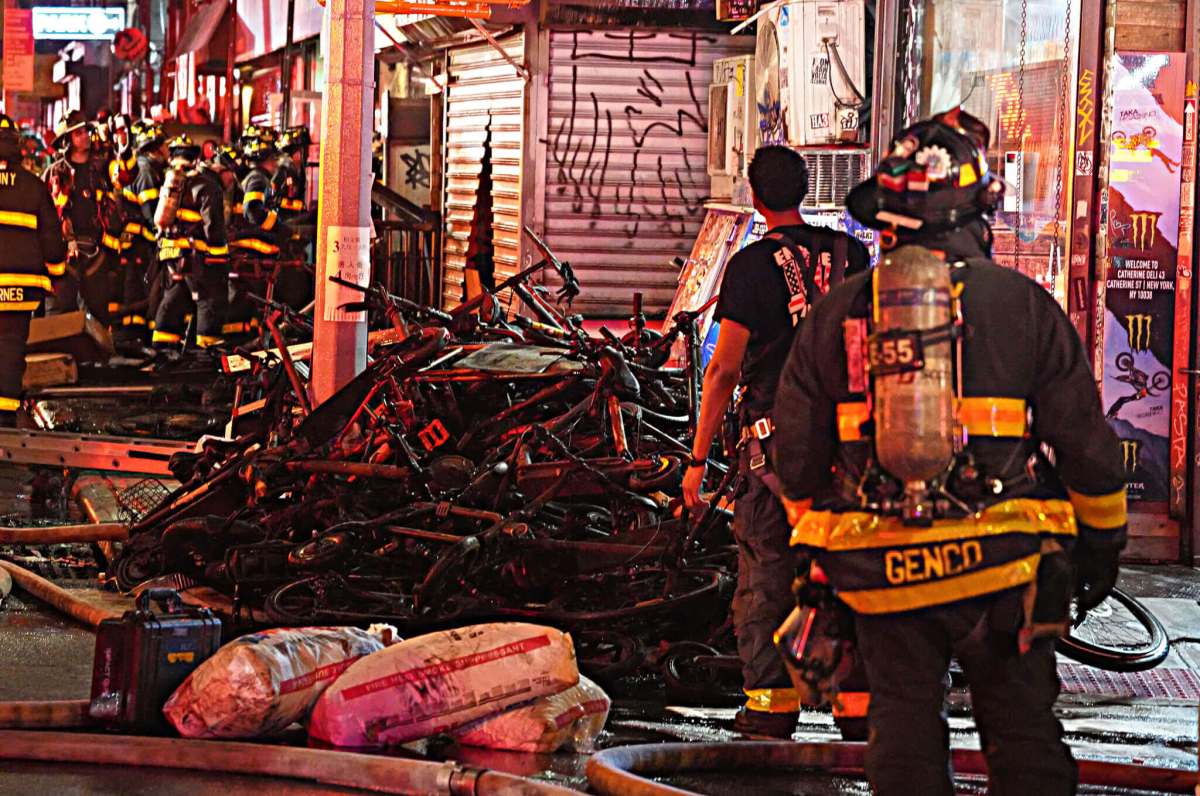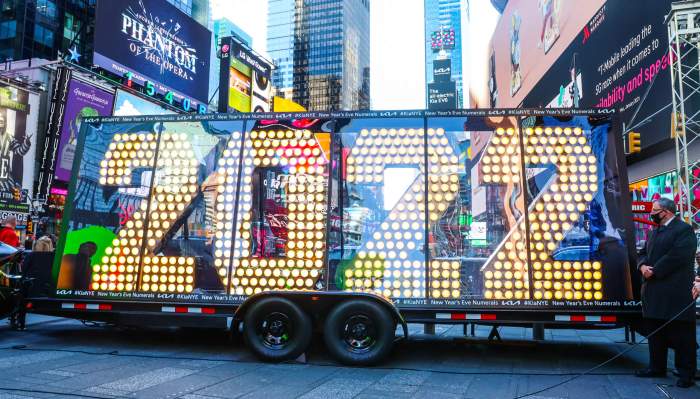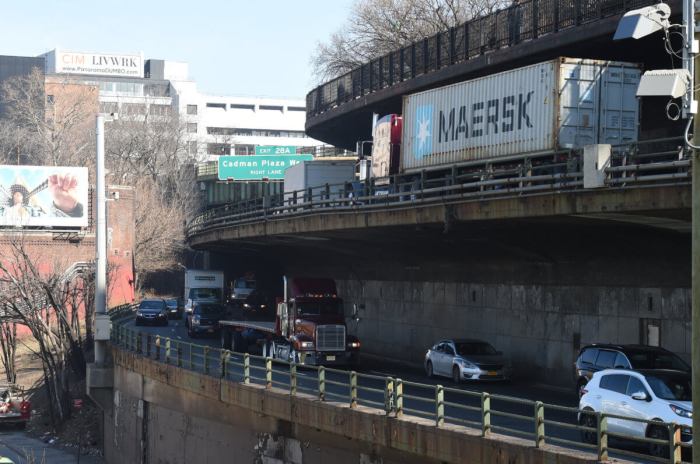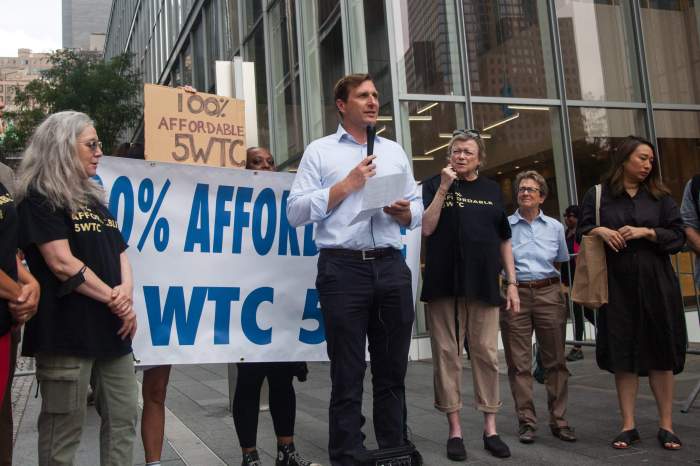Members of New York’s congressional delegation are seeking answers from federal regulators on e-bike safety standards and enforcement following a deadly fire at a Chinatown bike shop last week that left four people dead.
Rep. Dan Goldman (D-Manhattan/Brooklyn) penned a letter to the commissioners of the Consumer Product Safety Commission Thursday seeking an update from the agency on its outreach to e-bike manufacturers. The agency is calling on the firms to only manufacture and sell devices with batteries independently certified as safe.
The agency sent a letter to the manufacturers in December, but has not provided an update on corporate compliance or enforcement plans.
“We urge the Consumer Product Safety Commission (CPSC), as the federal regulating body for e-vehicle safety, to take swift action to hold manufacturers accountable if they do not meet minimum battery safety standards,” reads Goldman’s letter, which was signed by eight members of New York’s delegation on Capitol Hill.
Goldman’s letter was signed by House Majority Leader Hakeem Jeffries and Reps. Nydia Velázquez, Ritchie Torres, Jerry Nadler, Grace Meng, Gregory Meeks, and Adriano Espaillat.
The CPSC declined to comment.
The lithium-ion batteries powering e-bikes, which are quickly becoming part of the fabric of New York’s streetscape, are highly volatile and, if stored improperly, can cause fires that quickly spread out of control and are very difficult to extinguish. The fire at HQ E-Bike Repair in Chinatown last week not only destroyed the store but displaced many residents who live in apartments above the store. The store had a long rap sheet of 311 violations, and firefighters pulled a massive throng of charred e-bikes out of the store.
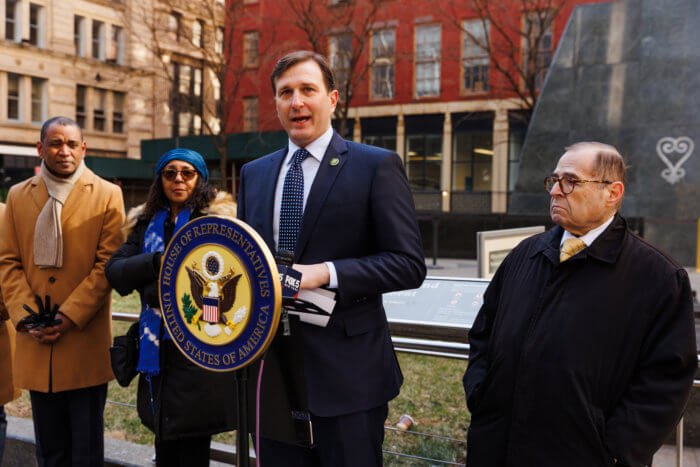
Earlier this month, Mayor Eric Adams announced that 311 calls of “questionable activity” at bike repair shops would have to get responses from local firehouses within 12 hours, instead of the previous 72.
This year, the City Council passed legislation banning the sale of e-bike batteries that don’t get certified as compliant with existing safety standards, namely Standard 2771 from Underwriters Laboratories. The Council also passed a bill banning the sale of “second-use” lithium-ion batteries made from the components of other batteries, with pols arguing those cheap batteries are more liable to catch aflame.
The cheaper, reconfigured batteries have been popular among the city’s 65,000-strong deliverista workforce, some of the most consistent users of e-bikes on city streets as they work to deliver food to hungry New Yorkers.
The Adams administration has also sought to establish new local hubs for deliveristas across the city to safely charge their bikes, instead of doing so at their homes, but has run into opposition in the places it’s proposed to site them.
Earlier this week, U.S. Senators Chuck Schumer and Kirsten Gillibrand announced $25 million in federal funding to build out safe charging infrastructure at NYCHA developments. The senators are also helming a bill on Capitol Hill to create a mandatory, rather than voluntary, set of safety standards for e-bike batteries.
The members of Congress also requested the CPSC consider mandating helmets for all ages while riding e-bikes and setting maximum speeds at which the vehicles can travel.
“Electric bikes, scooters and hoverboards are clearly here to stay,” wrote the pols. “We understand their immense value in our communities, but they must be adequately regulated to help ensure the safety of our constituents and the communities these vehicles benefit.”



